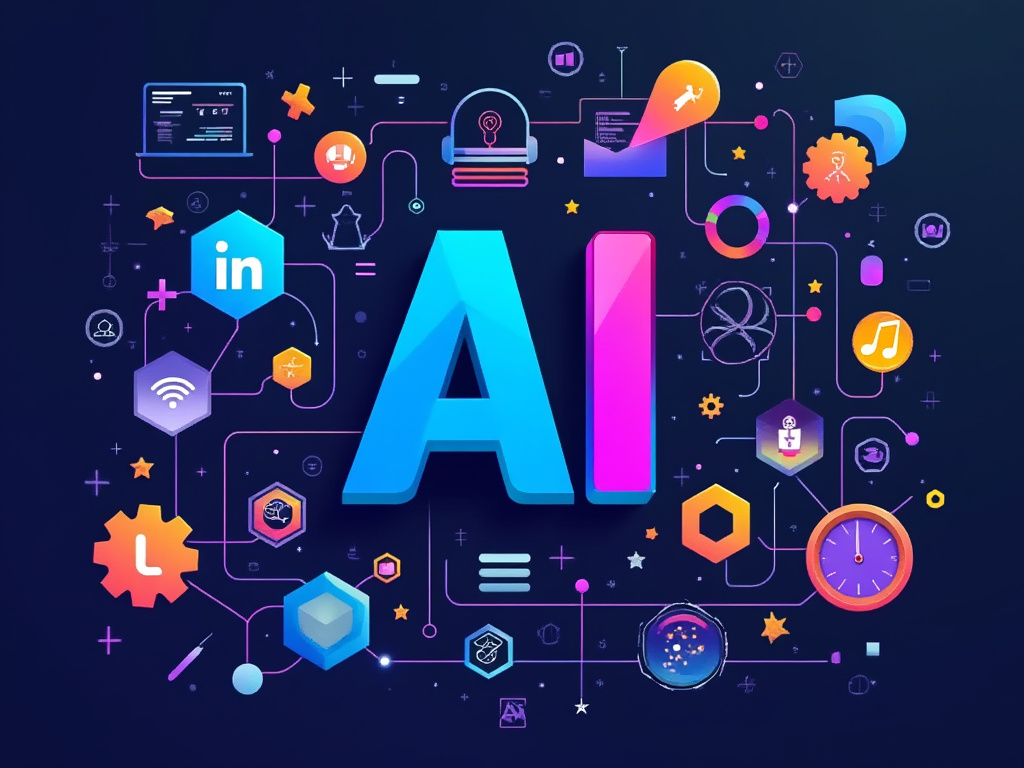In the past decade, artificial intelligence (AI) has grown beyond theoretical discussions and futuristic predictions, embedding itself into practical, everyday work. AI tools have become indispensable in enhancing productivity, streamlining operations, and improving decision-making across various industries. Here, we explore some Practical Applications of AI Tools that can transform the way we work every day.
1. Automating Routine Tasks
One of the most direct benefits of AI is its ability to automate repetitive tasks. Tools like Zapier and IFTTT (If This Then That) use AI to set up workflows that automatically complete tasks such as sending emails, updating databases, or scheduling social media posts. This automation frees up employees to focus on more strategic and creative work.
Example: Marketing teams use automation tools to schedule and post content across multiple platforms, ensuring consistency and saving hours of manual work each week.
2. Enhancing Customer Support with AI Chatbots
AI-powered chatbots, like ChatGPT and Intercom, have become common in customer service. These tools can answer frequently asked questions, provide support outside of business hours, and even assist with basic troubleshooting. The result is a better customer experience and reduced workload for human agents.
Example: A small e-commerce business can implement an AI chatbot on its website to handle inquiries about shipping times, order statuses, and product availability, reducing the need for constant human intervention.
3. Improving Writing and Content Creation
For those involved in content creation, AI tools such as Grammarly and Jasper AI provide valuable assistance. These tools help create well-written, grammatically correct, and engaging content. Whether drafting emails, writing articles, or preparing presentations, AI-driven writing assistants can suggest improvements, optimize tone, and even generate ideas.
Example: A marketing professional can use an AI writing tool to craft compelling ad copy and blog posts, ensuring clear communication and consistency across all platforms.
4. Streamlining Project Management
AI-enhanced project management platforms like Trello, Asana, and ClickUp use machine learning to prioritize tasks, predict project timelines, and provide data-driven insights to keep teams on track. These tools analyze team activity to optimize workloads, assign tasks intelligently, and send reminders to maintain productivity.
Example: A project manager can rely on an AI-powered tool to identify potential bottlenecks in a project and suggest solutions, allowing the team to stay proactive rather than reactive.
5. Data Analysis and Forecasting
AI tools designed for data analysis, such as Tableau and Power BI with AI enhancements, enable businesses to extract insights from vast datasets without requiring a deep background in data science. These tools use machine learning algorithms to identify patterns, predict trends, and create interactive reports that aid in strategic decision-making.
Example: Financial analysts can use AI-powered data visualization tools to assess market trends quickly and make informed investment recommendations.
6. Enhancing Personal Productivity
Personal productivity apps powered by AI, such as Notion AI and Microsoft Copilot, help professionals manage their workload more efficiently. These tools can create summaries, set reminders, draft responses, and even organize notes based on user needs.
Example: A manager can use AI to sift through long reports, condensing key information into actionable insights, saving time for critical decision-making.
Adopting AI for Maximum Impact
Adopting AI tools doesn’t require an overhaul of your current systems. Start small by identifying routine or time-consuming tasks in your daily workflow that could be automated or optimized. Integrate one or two AI tools and monitor their impact on productivity. Over time, as familiarity grows, expand the use of AI across different areas of work.
Final Thoughts
AI is no longer just an asset for tech giants; it’s an accessible tool that can enhance everyday work across industries. Whether it’s automating tasks, improving customer service, or supporting content creation, the right AI tools can help businesses and professionals work smarter, not harder.



